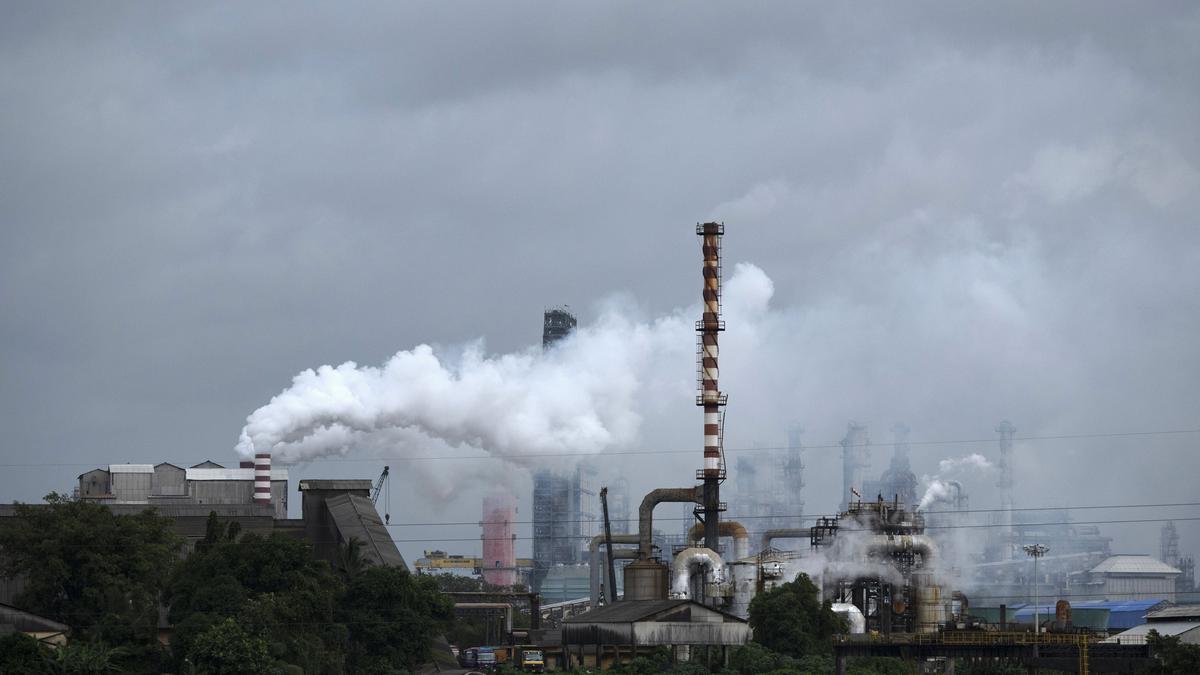
A European Union plan to impose tariffs on high-carbon imports may damage creating nations in Asia however is unlikely to result in massive reductions in greenhouse gasoline emissions, the Asian Development Bank (ADB) stated in a report revealed on Monday, February 26.
| Photo Credit: AP
A European Union plan to impose tariffs on high-carbon imports may damage creating nations in Asia however is unlikely to result in massive reductions in greenhouse gasoline emissions, the Asian Development Bank (ADB) stated in a report revealed on Monday.
The Carbon Border Adjustment Mechanism (CBAM) was launched to deal with issues that the outsourcing of producing had put massive elements of the EU’s provide chain past the attain of its emissions buying and selling scheme (ETS), a state of affairs described as “carbon leakage”.
Also Read | CBAM will kill EU manufacturing, India may have its personal carbon taxes: Goyal
It was designed to stage the enjoying area and make overseas suppliers pay the identical carbon worth as home ones, even when they aren’t topic to an ETS or carbon tax at dwelling.
ADB stated CBAM was anticipated to chop Asian exports to the EU, significantly from western and southwestern Asia, with metal from India additionally prone to take a success.
But any small discount in emissions would shortly be offset by the persevering with improve in carbon-intensive manufacturing all through Asia, and mechanisms to share emission discount know-how could be simpler, it stated.
“It’s actually a relatively limited policy at the moment,” stated Neil Foster-McGregor, ADB’s senior economist. “It only imports into the EU (and) only covers six sectors.
“The means the size of manufacturing is rising, even when we do that carbon pricing extra broadly throughout the globe, you are still going to see rising emissions except we see a basic change in manufacturing strategies,” he added.
CBAM could raise around 14 billion euros ($15.2 billion) in revenue by 2030, and the proceeds should be used to provide climate finance for developing countries to decarbonise manufacturing, Mr. Foster-McGregor said.
One of the aims of CBAM was to incentivise non-EU economies to impose stricter climate policies of their own: if exporting nations can demonstrate that a carbon price has already been paid, the CBAM levy will be reduced.
India has already discussed the possibility of imposing export taxes on CBAM-covered products sold to Europe, and China is expanding its ETS to cover exporting sectors like steel.
Both countries have been critical of CBAM, with China warning Europe not to use climate as an excuse to engage in trade protectionism.
Also Read | Parliament panel suggests govt to seek 3 years deferment on EU’s carbon tax for MSMEs
While CBAM serves as a tariff on foreign producers, it will also raise the cost of raw materials such as steel and fertiliser for downstream EU manufacturers, and could even give them an incentive to relocate more production capacity overseas, including Asia, the ADB report warned.
“While there’s a partial offsetting of the carbon leakage within the upstream, there may very well be new carbon leakage downstream within the EU … They are capturing themselves within the foot,” stated Jong Woo Kang, one other senior ADB economist, talking at a briefing on Monday. )
Source: www.thehindu.com



